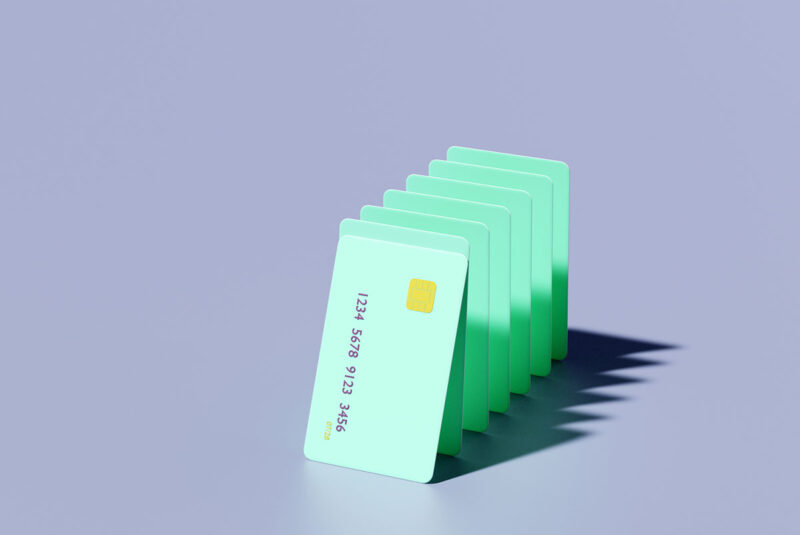It can be disconcerting to find an unrecognized credit card charge, but disputing questionable transactions is simple when you understand your rights.
Not only is the federal law on your side, but credit card issuers usually have your back, too. Here’s how to dispute credit card charges when it comes to fraud, billing errors, and even unfulfilled merchant promises.
How to Dispute Credit Card Charges Caused By Fraud
If you find a charge you don’t recognize, you should first ask any friends and family if they made the charge without your knowledge. (You’d be surprised how often this happens!)
If they didn’t, it’s likely your card number was compromised. In that case, you should call your credit card issuer immediately and dispute the fraudulent transactions. Your card issuer will start an investigation and freeze or deactivate your card to prevent further fraudulent charges. The issuer will send you a new card with a new card number and CVV.
If you suspect that you’re also a victim of identity theft, and your personal details have been compromised (like your SSN), you should take steps to freeze your credit reports. This may prevent others from opening up new credit accounts or taking out loans in your name.
It’s a good idea to check your three credit reports as well, to see if any fraudulent accounts have already been opened in your name, without your knowledge. If you discover fraudulent accounts on your credit reports, you can visit IdentityTheft.gov to report the crime and create a recovery plan.
Once you’ve notified your card issuer about any fraudulent changes and have been issued a replacement card, there’s not much to do other than wait. The Fair Credit Billing Act (FCBA) states that credit card users are only liable for up to $50 in fraudulent charges.
The major credit card networks — Visa, Mastercard, Discover, and American Express — take it a step further by offering “zero liability” policies. This means that in cases of fraud, you won’t have to pay a dime.
As mentioned, the issuer will send you a replacement card with a new account number, and you can get back to your normal life. If you’ve added the card to a digital wallet like Apple Pay, some issuers will update the card there immediately, before you even receive your new physical card in the mail.
Here are a few extra steps you could take:
- File a police report, as it could help other people avoid the same headaches.
- If you stored your old card number with shopping websites, or had it linked to automatic payments, update those accounts with the new number.
- Learn how to keep your credit cards secure in the future.
How to Dispute Credit Card Charges Caused By Billing Errors
See a double charge from your favorite sushi restaurant on your statement? Or a $100 charge that should’ve only been $10?
Your first step should always be to contact the merchant. In the name of customer service, merchants will often resolve the issue by refunding your card for the surplus amount when you feel you’ve been overcharged.
If the merchant refuses to help you, you can begin the dispute process with your credit card issuer. Here’s what you have to do.
1. Write to your credit card issuer
Legally, you have 60 days after receiving the erroneous bill to report the mistake to your issuer — in writing.
Although the Federal Trade Commission (FTC) advises sending a letter via certified mail, that’s not always necessary these days. Many card issuers allow you to submit claims through “dispute” buttons on their sites, or by sending notes through their secure message portals.
Note: If you think you might eventually need to go through the legal system to resolve your situation, sending a certified letter to the card issuer’s billing inquiry address could be an important step. An attorney can advise you further.
In your dispute, include as many details as possible about the charge: names, dates, and any proof the charge isn’t yours. Though this isn’t required by law, it can be helpful. For more guidance, check out the FTC’s sample letter.
The credit card issuer must acknowledge its receipt of your dispute within 30 days. And if the charge is nominal — usually under $25 — you probably won’t have to do anything else. Since it would cost the credit card company more money to open up an investigation, it’ll generally eat the cost of your disputed purchase, and you can go on your merry way.
Insider tip
Don’t abuse the ability to easily dispute small charges. The card issuer will eventually catch on, and may cancel your account.
2. Wait for your issuer’s decision
According to the FCBA, the card issuer has two billing cycles (and a maximum of 90 days) to resolve your claim with the merchant.
During that time, you shouldn’t pay for the disputed charge — but you must pay the rest of your credit card bill on time.
Take note that the disputed charge will still affect your credit limit. If your credit card has a $2,500 limit, for example, and you’re disputing a $500 charge, you’ll only have $2,000 to spend on your card until the dispute is resolved.
In most cases, credit card issuers will side with the consumer and take the charge off your bill. If it believes the charge is legitimate, however, it’ll support the merchant and make you pay for the charge.
How to Dispute Credit Card Charges Caused By Poor Quality of Goods and Services
Imagine you paid a plumbing service that never showed up, or you purchased a TV that doesn’t work. Though you might not know it, credit card companies often have your back when dealing with issues like this and so does federal (and perhaps state) law.
If you receive goods that are damaged, defective, or not as described — or you didn’t receive the promised goods or services at all — you can request a “chargeback” from your card issuer.
As with billing errors, you should always dispute the charge with the merchant first when you have an issue with the quality of goods or services you received. Many merchants want to do the right thing for their customers and will work with you to find a resolution. Merchants also prefer to avoid chargebacks. Chargebacks can mean higher payment processing fees for merchants, and they may face other penalties if they get too many.
If the merchant refuses to cooperate, it’s within your legal rights to request a chargeback from your credit card issuer, as long as the following requirements are met:
- The purchase must have been at least $50.
- You must have made the purchase in your home state, or within 100 miles of your current billing address.
- You must have made a “good faith effort” to resolve the dispute with the merchant.
To be on the safe side, you should request chargebacks within 60 days of the disputed purchase. Contact your credit card issuer via phone or secure message to begin the process.
Some credit cards also offer purchase protection, return protection, and other benefits. These can provide reimbursement if eligible purchases are broken or stolen, or if the merchant refuses to take back an item.
When Your Dispute or Chargeback Request Is Denied
Credit card issuers often side with their cardholders. Yet there are times when your credit card dispute or chargeback request may be denied. Here are a few reasons why that might happen.
- You waited too long to contact your card issuer. It’s important to notify your card issuer of a billing error or chargeback request within 60 days of the statement date.
- You didn’t contact the merchant. Other than cases involving fraud, you should give the merchant the opportunity to resolve the situation first.
- You made a purchase outside of the United States. Consumer protection laws that apply to credit card disputes and chargebacks may not apply to purchases made in other countries.
- You lied. If you make up a story to try to get your money back from a merchant, there’s a good chance you’ll get caught. Not only may your dispute or chargeback request be denied, the card issuer might close your account as well.
Actions you can take if your claim is denied
If your credit card dispute or chargeback request is denied, but you believe you’re owed a refund, these steps might help.
1. Challenge the Investigation
If a card issuer doesn’t find in your favor, it must give you a written explanation that tells you why. You can challenge the investigation results within 10 days of receiving this notice.
2. Involve Someone Else
If you think your card issuer is ignoring your rights, you can file a complaint with the following organizations:
3. Talk to an Attorney
If the charge is for a significant amount and you don’t think a credit card company is handling your situation properly, you might consider speaking with an attorney. You can find attorneys who specialize in the FCBA and other consumer protection laws by visiting the National Association of Consumer Advocates.
Use Your Power Wisely
As you can see, the FTC and credit card companies put a lot of trust in cardholders.
In fact, these consumer protections are one of the biggest reasons we advocate using credit cards instead of debit cards.
So it’s imperative not to lie or exaggerate. Taking advantage of generous credit card policies — by falsely claiming you never received a product, or by claiming an honest charge was fraudulent — doesn’t benefit anyone.
Unnecessary chargebacks also cost merchants a lot of money. And, if you request questionable chargebacks often, the credit card issuer may decide to close your account permanently.
By wielding our powers wisely, we can continue to enjoy the benefits of the best credit cards for many years to come.



